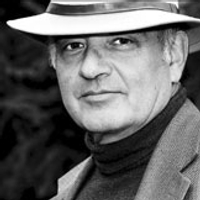The Lost Suitcase: Reflections on the Literary Life
Nicholas Delbanco. Columbia University Press, $85 (238pp) ISBN 978-0-231-11542-1
Nonfiction musings cluster around an experiment in fiction in this genre-defying collection by writer (Old Scores, etc.) and University of Michigan professor Delbanco. Moderately engaging, if plagued by a whiff of the daily diary, the volume offers numerous aper us about the life of letters. ""These are the stories that never quite attain fictive fruition, the speeches that don't reach the podium or print..., the fine phrases and false starts and tangents and scenes from the cutting-room floor,"" Delbanco writes, describing a notebook he keeps (one senses that he refers inadvertently to the collection itself). Though the writer gracefully expands upon the subjects of his reflections--literary mentors, university life, the passage of time, the form of the novel, fatherhood--and amuses with wordplay, the essayistic diary is a form toward which readers are infinitely more indulgent when the writings are discovered posthumously and the burden of intent and self-satisfaction is lifted. Inverted syntax (""So now that I am older than was Yeats himself when he prayed for his girl"") and antiquated diction (his childhood home was ""hard by"" Hampstead Heath) heighten the book's mustiness. The most ambitious element in the collection, the one that gives it its title, is a fictional multiple revision of an episode from the life of Hemingway: each section of the novella imagines (""pictures,"" to use Delbanco's word) various possible versions of an encounter between a Hadley-like woman, AnnaLise, and a Hemingway-like man, Ed, when they meet at a train station after a separation, and she has lost the suitcase containing his first writings. The lesson in the multiplying possibilities of fiction and the endless process of producing drafts is a useful one, but one of greater interest to students than to the general reader. (Mar.)
Details
Reviewed on: 03/13/2000
Genre: Nonfiction
Paperback - 238 pages - 978-0-231-11543-8


